Europe is preparing a “heated” October for Georgia Middle Corridor at risk
The local elections in Georgia, scheduled for 4 October 2025, are approaching. Part of the pro-Western opposition, primarily the United National Movement party linked to former president Mikheil Saakashvili, has announced a boycott. Meanwhile, the segment of the opposition that is taking part in the elections received a kind of “gift” from the authorities — President Mikheil Kavelashvili pardoned the leaders of the Strong Georgia — Lelo party, Mamuka Khazaradze and Badri Japaridze. In his statement, Kavelashvili stressed that the decision was made in order to preserve a competitive environment in the upcoming regional elections, expressing hope that “in the future they will continue their political activities with respect for the law.”
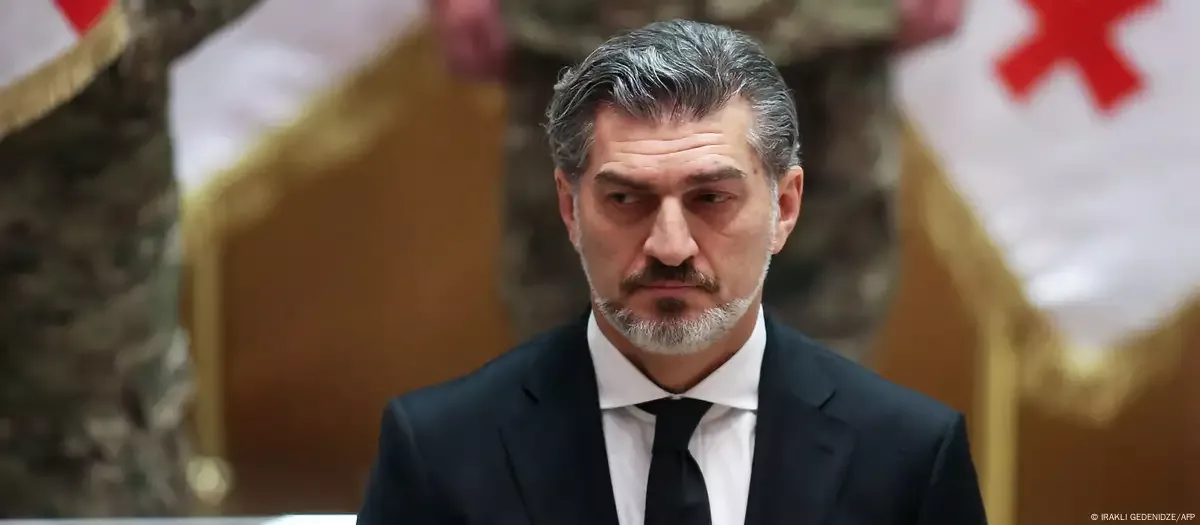
As a result, not only has the split within the opposition deepened, but provocations have also begun from the faction that declared an election boycott.
On the evening of September 8, 2025, in Tbilisi, on Melikishvili Avenue near the campaign headquarters of the ruling party’s mayoral candidate, Kakha Kaladze, a clash broke out between young supporters of Georgian Dream and aggressively minded opposition activists, who insulted their opponents and provoked the conflict.
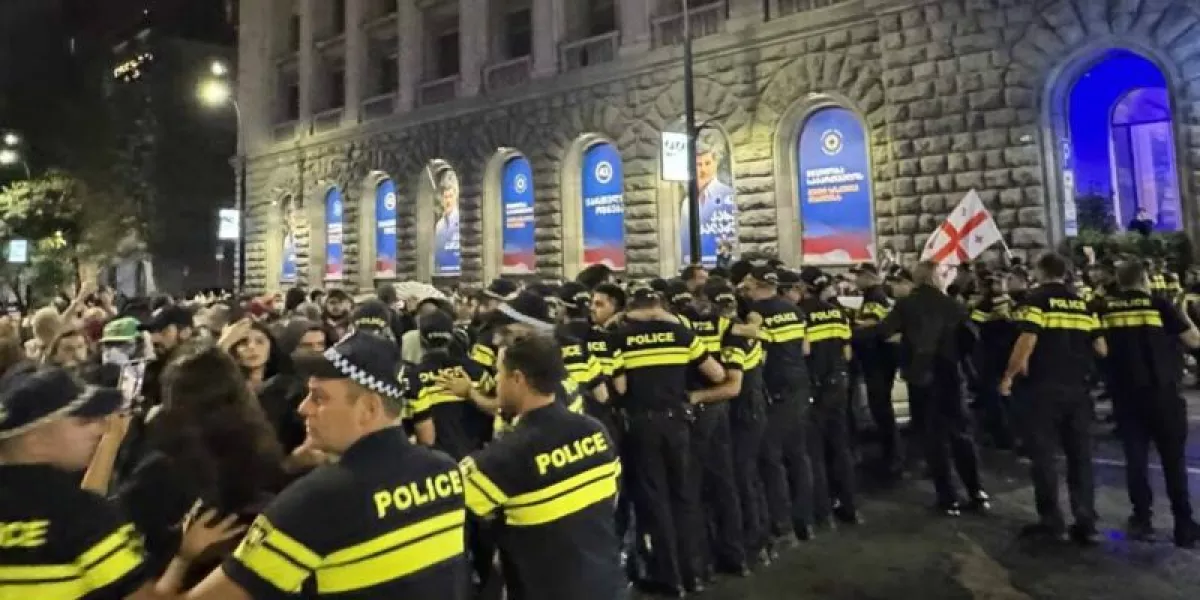
According to Kakha Kaladze, the confrontation between his supporters and participants of the anti-government protest was “a deliberate provocation aimed at artificially inflaming tensions.” He stated: “This was a very serious provocation, and not the first time. For these people, bursting in, insulting, and swearing have become an everyday occurrence.”
Parliament Speaker Shalva Papuashvili also commented on the incident near Kaladze’s headquarters on Melikishvili Avenue. “In this process, beyond the extremist groups incited by certain foreign diplomats, they have involved externally funded propaganda platforms, including the Brussels-funded Netgazeti, which not only provides propaganda for violence but actually organises violent attacks on Georgian Dream’s election headquarters itself. We have seen biased, partisan, yellow, all kinds of media, but ‘violent media’ is a new phenomenon which, following the example of Rwanda’s ‘Thousand Hills Free Radio and Television’ (Radio Télévision Libre des Mille Collines, RTLM), is a product created by foreign donors,” Papuashvili wrote.
The Speaker of the Georgian Parliament directly accused the German Ambassador to Georgia, Peter Fischer, of shielding opposition provocateurs. According to Papuashvili, the protesters attacked the Georgian Dream headquarters with fascist slogans under the patronage of the German Ambassador.
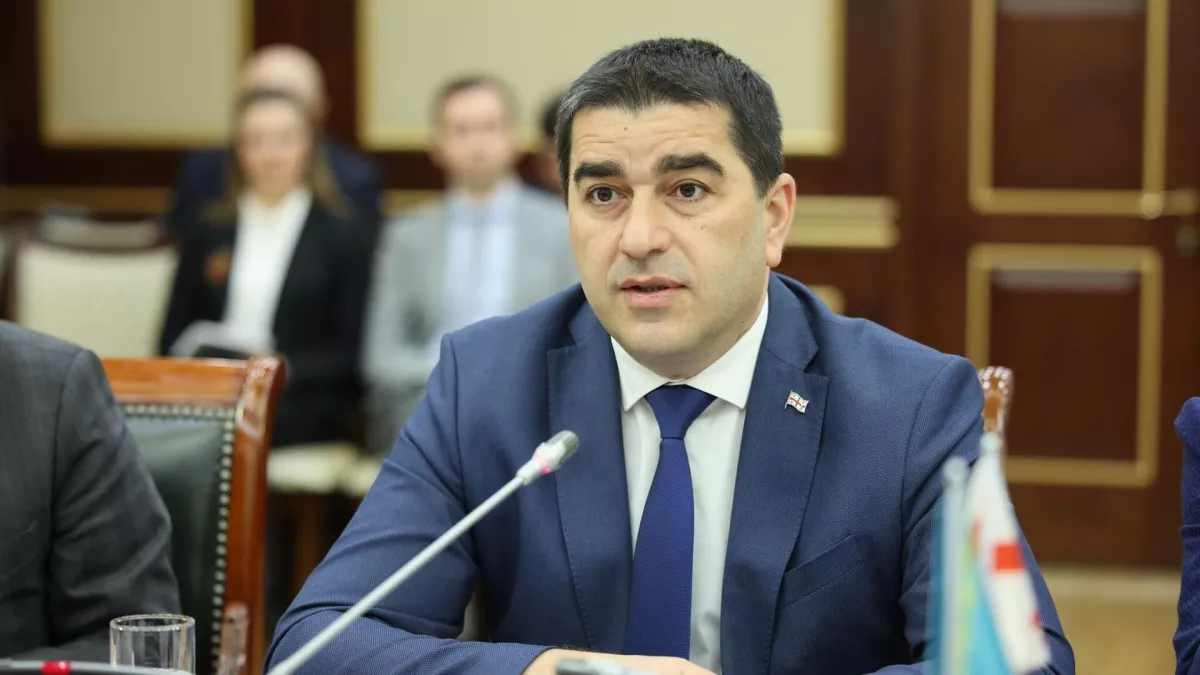
“During the election campaign, the support for extremists and a foreign ambassador’s failure to condemn violence is an example of gross interference in the elections, in violation of the Vienna Convention,” he stressed.
Interestingly, Germany is backing both branches of the Georgian opposition — the “hardline” faction as well as those who have agreed to participate in the elections.
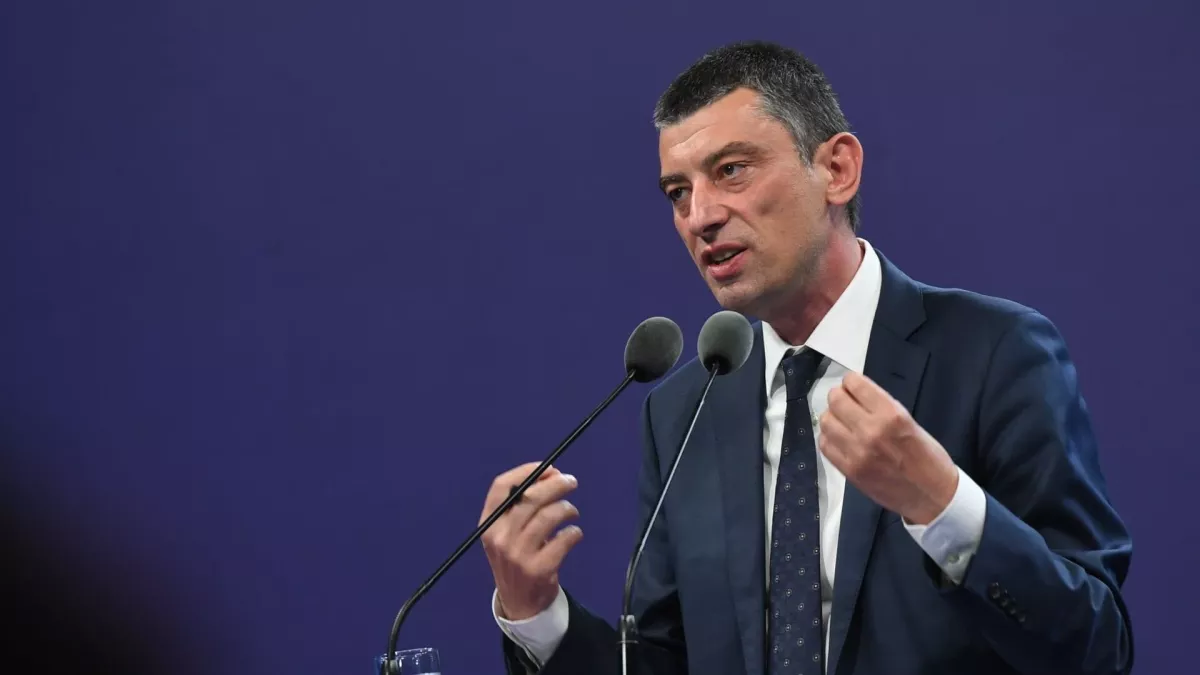
The leader of one of the two main participating parties, For Georgia, Giorgi Gakharia, recently obtained a residence permit in Germany. Meanwhile, the family of Mamuka Khazaradze, leader of the opposition force Lelo – Strong Georgia, rents out their residence to German Ambassador Peter Fischer — effectively providing the politician with direct financial support.
This naturally raises the question: why is Germany so determined to support all branches of the Georgian opposition and so invested in replacing the current pragmatic Georgian Dream government with “pro-European” puppets hostile to Russia? The answer is simple — the desire to open a “second front.”
The Washington Post reports that Germany is sharply increasing its defence funding, rapidly expanding its military-industrial base, and launching a large-scale recruitment campaign that will likely include the reintroduction of some form of compulsory service. The country is also creating “strategic reserves” of essential supplies in case of a major war, particularly food. Germany’s agriculture minister has announced plans to establish a national stockpile of ready-to-eat meals, including canned goods.
This German war-preparedness drive aligns with France’s efforts to boost its military potential — where authorities are already preparing for the mass treatment of wounded soldiers — as well as the sharp rise in defence spending in Poland and the Baltic states. Germany actively supports military preparations in these countries; recently, the Bundeswehr deployed more than 1,000 units of military equipment to Lithuania to take part in the large-scale Quadriga 2025 exercises. These manoeuvres are designed to rehearse the defence of the Baltic Sea region in the event of a military conflict.
Judging by Germany’s large-scale military preparations, the country’s leadership appears to assign Georgia the role of “expendable military material,” to open a “second front” and force Russia to divert part of its forces away from the anticipated “European theatre of operations.” At the same time, Berlin and Paris — both backing the Georgian opposition — are well aware that Georgia would be quickly defeated, and that transit routes through the South Caucasus, including the Middle Corridor, would be cut off. Yet, it seems this too is part of the plan of the external sponsors of Georgia’s “revolutionary processes.”
As they prepare for a “major war,” Germany’s and the EU’s ruling circles are unwilling to wait for Georgia’s parliamentary elections or to “leave official Tbilisi alone.” There are strong grounds to believe that external forces are once again betting on a “revolutionary” scenario for regime change in the very near future. All the more so since such a scenario has already been successfully implemented in Nepal — squeezed between India and China — on September 9, 2025.
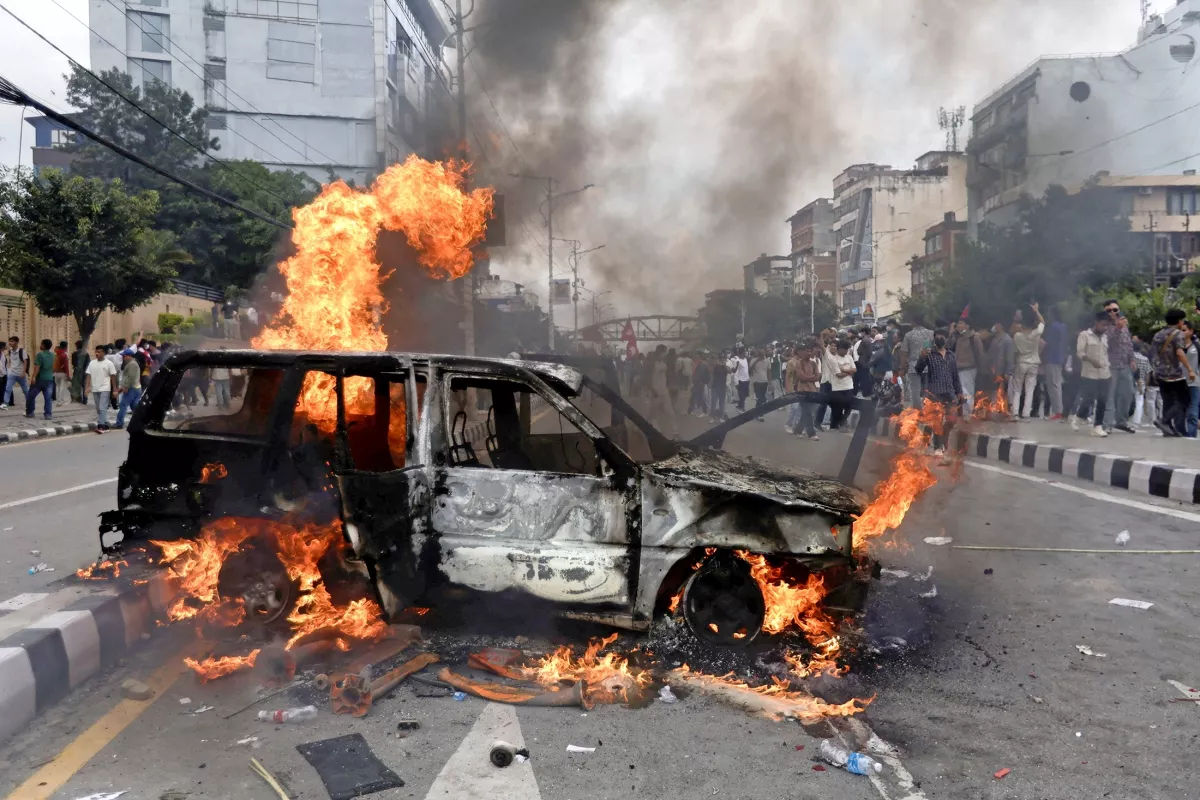
The trigger for the “revolution” in Nepal was the government’s restrictions on social media. However, the way events unfolded — and how swiftly the “pro-Chinese” communist government of Nepal, led by Sharma Oli, was toppled by an aggressively mobilised crowd — makes it clear that external “directors” were involved. Naturally, Western media portrayed the events in Nepal as a “spontaneous protest by youth outraged by corruption and government abuse.”
For China, what happened in Nepal, right on its borders, is a serious challenge. While Nepal itself has virtually no transit significance, it borders China’s Tibet, where separatism remains a sensitive issue.
For the Georgian authorities, the events in distant Nepal are also a troubling signal — not least because opposition propaganda accuses Georgian Dream not only of being “pro-Russian” but also “pro-Chinese.” By this, critics mean the involvement of Chinese companies in building infrastructure to ensure the reliable functioning of the Middle Corridor, including the Anaklia port. Notably, the main opponent of Chinese participation in the Anaklia port project was none other than Mamuka Khazaradze, the leader of the Lelo – Strong Georgia party, who for nearly six years effectively sabotaged the start of the port’s construction.
It is evident that destabilisation in Georgia — and especially the opening of a “second front” and the outbreak of war — carries enormous risks of blocking the Middle Corridor, which would deal a serious blow to most Central Asian countries as well as to China. For this reason, the “revolutionary blueprint” tested in Nepal could well be transplanted onto Georgian soil.
Notably, the most active “revolutionary-style” propaganda is being carried out by the United National Movement (UNM), which is calling on its supporters to take to the streets while promising a “peaceful” revolution. “We have never been so close to victory. On October 4, no matter what, there must be many of us! We will achieve an unconditional victory! Let’s mobilise and get ready to celebrate our triumph!” wrote UNM Political Council Chairman Levan Khabeishvili on social media.
Despite claims of the protests being “peaceful,” it is clear that this opposition force is intent on an unconstitutional change of power. In the coming days, new provocations by the opposition, backed from abroad and aimed at destabilising Georgia ahead of October 4, 2025, should be expected.
By Vladimir Tskhvediani, Georgia, exclusively for Caliber.Az








